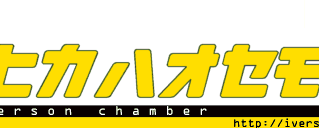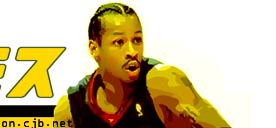





| Iverson ó the great anti-hero |
|---|
| Tattooed, pierced, braided 76er recalls Namath uproar |
|
>Allen Iversonís run at the NBA Finals has entered the second round, and it is a long time since we have been treated to such a meeting of good and evil, of old and new, of establishment and rebel. And maybe casual basketball fans arenít that interested in a Philadelphia-Toronto series, but if Iverson and the 76ers keep advancing, eventually they will care passionately. THEY WILL CARE because Iverson is a classic counter-cultural hero cut from the same cloth as Elvis Presley, Joe Namath, and few others. He is the man who takes delight in being bad against a league that is trying to rediscover the image it had when its heroes ó Larry, Michael, and Magic ó were such paragons of wholesome goodness. Already, Iverson has his first true foil in the person of the handsome, soft-spoken, and gentlemanly Vince Carter, who made his first postseason on-court statement in the Raptorsí five-game triumph over the Knicks in the first round. Now theyíve taken the court together in the money rounds, and the contrast is like day and night. There is Carter, the hero the NBA wants to lead it into a new generation that finally stops whimpering about how thereís nobody around as good as the heroes of yore. And in the other uniform, there is Iverson, all tattoos and piercings and braids and attitude, the anti-hero that the NBA fears will scare away the customers. If Carter can lead the Raptors past the 76ers, he will become not just a new superstar, but the Man Who Saved the American Way of Life. That may not be such an easy task, as Iverson proved by scoring 54 points in Game 2. If Carter canít pull it off, defenders of that way of life will sweat and pray and hope that whoever Iverson meets in the Eastern Conference finals can do the job. With luck, no one will stop Iverson and he will get into the Finals, which will, the moment he steps on the court, stop being a hoops tournament, and become Armageddon. If the NBA has a sense of theater, this is what it should hope for. Itís easy to ignore a final between the Lakers or Spurs and any other team in the East. Who, after all, cares about Toronto or Milwaukee or Charlotte? The Knicks are out of it, and if you want ratings, you want Iverson, the man middle America wants to see beaten and is terrified that he might win. Donít make this a racial thing. Joe Namath didnít have a tattoo and he never made a hip-hop album, but he was every bit as scary to suburban parents as Iverson, every bit as scary as Elvis with his lewd hip-swiveling was seen to be 20 years earlier. Namath chased women and caught them ó if truth be known, the ladies were as happy to lose the chase as he was to snare them ó and showed not the slightest remorse. He wore his hair longer than your mom and dad wanted you to wear yours, and he dressed in bell bottoms and flashy shirts and jackets with collars as wide and long as 747 wings. And he drank hard liquor with reputed mobsters in clubs where god knows what sort of depravities were being performed. Namath is almost cuddly today, but if you were around when he took the 1969 Jets to the Super Bowl, you remember how desperately both the NFL and your parents and grandparents and your neighborhood priest, minister or rabbi wanted the Colts to squish him like the loathsome insect they were sure he was. Because if he succeeded, it would validate his lifestyle. And as every god-fearing flag-saluting American knew, Namathís lifestyle was the sort that was leading the country straight to hell in handbag. Thatís the effect Iverson has. He scares middle-class America, Republican and Democrat; Christian, Muslim, Jew, and maybe Buddhist and Hindu; black, white, red, yellow, brown, and all of the above. If you are a parent with a job and a mortgage and a child or two who likes listening to music that makes every nerve in your body scream in terror, a child who spikes or braids his or her hair and talks lovingly about getting pierced and having ink etched into his or her epidermis, Iverson is the enemy, because he is the bad guy who threatens to triumph in a mainstream sport that is a cherished part of American culture. As such, heís a lot more dangerous to you than Eminem and Rage Against the Machine and Ice Cube and the gone-but-not-commercially-forgotten Tupac Shakur and the rest of those alleged musicians whose lyrics seethe with misogyny, racism, homophobia, murder, mayhem, rape and destruction. Musicians play to subcultures. Sports play to the nation. Iverson already has made an impact on kids who go to the playground to shoot hoops and dream about becoming stars. He influences the kids who shoot at the hoop in the driveway, the kids on your local CYO and high school teams, the heroes who play for your favorite college. As long as he fails to win the ultimate prize, middle America can smugly smile and tell the kiddies that, as the scoreboard so clearly shows, the good and decent and clean-cut players, the Kobes and Shaqs and Duncans and Robinsons, win. The bad players ó which means Iverson ó lose. And which do you want to be? Iíll be honest. I didnít like Iverson for a long time, but more because of his work ethic than his body art. But I canít fail to admire the way heís turned his career around, how heís committed himself to the weight room and practice and the team, how heís come to realize that when you play a game for a living, the only thing that matters is winning. Heís a stunningly talented player who is becoming that winner. And I have to admit, it would be delicious to watch David Stern have to hand the NBAís big golden basketball to Iverson at the end of the playoff road, and listening to all those who line up to predict that the end of the world has arrived will be almost as entertaining. Because the world wonít end if Iverson wins. It might change a little, but if Elvis and Broadway Joe are any indication, it wonít be worse. And 30 years from now, when Iverson is old enough and mellow enough to be cuddly, weíll wonder what all the excitement was about. |

|
|---|
| Author |
| Mike Celizic |
| Source |
| MSNBC |
| Return to Articles |